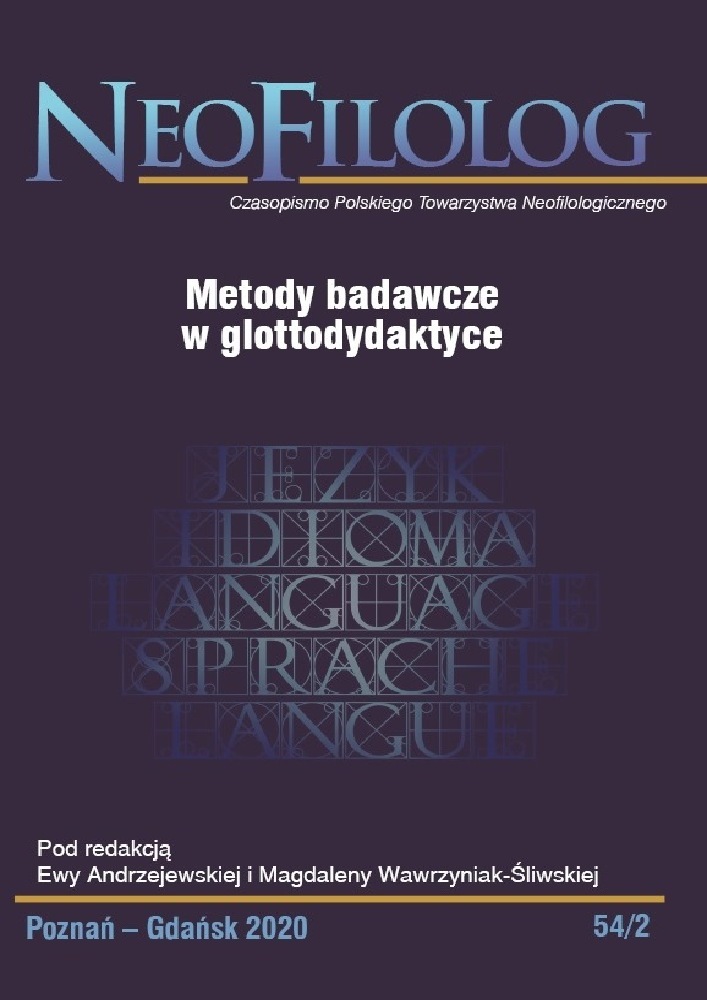Abstrakt
In pre-service training for teachers of English opportunities for dialogic interaction (Skidmore and Murakami, 2017) with a mentor are seen to play an important role in professional awareness and development (Wallace, 1993; Gabryś-Barker, 2012; Howard and Donaghue, 2015). To fulfil the demands of their practices student-teachers work with a number of different people: a school teacher (mentor), academic supervisor and the academic staff who lead the English teaching methodology course (Blaszk, 2015). This being the case, it was hypothesized that teaching practices might exist as a community of practice within which student-teachers in interaction with these different people would be supported in their professional development. The aim of the qualitative research reported in this paper was to discover how the student-teachers in a particular institution perceived their teaching practices and whether or not those practices could be viewed as a community of practice that supported the students.
Bibliografia
Blaszk M. (2015). Between didactics, the mentor and the pupils: Trainee reflections concerning their teaching practices. Neofilolog 45/1: 9-25.
Edge J. (1992). Cooperative Development. Harlow: Longman Group UK Limited.
Gabryś-Baker D. (2012). Reflectivity in Pre-Service Teacher Education. A Survey of Theory and Practice. Katowice: Wydawnictwo Uniwersytetu Śląskiego.
Howard A., Donaghue H. (eds.) (2015). Teacher Evaluation in Second Language Education. London: Bloomsbury Academic.
Mason J. (2002). Qualitative Researching. London: Sage Publications.
Skidmore D., Murakami K. (eds.) (2017). Dialogic Pedagogy: The Importance of Dialogue in Teaching and Learning. Bristol: Multilingual Matters.
Sullivan H. S. (1953). The Interpersonal Theory of Psychiatry. New York: W.W. Norton & Company, Inc. Teaching Practice Information. Retrieved 17/02/2018, from https://fil.ug.edu.pl/wydzial/instytuty_i_katedry/instytut_anglistyki_i_amerykanistyki/praktyki/praktyki_nauczycielskieteaching_work_experience [DW 18.08.2019]
Wallace M. J. (2008). Action research for Language Teachers. Cambridge: Cambridge University Press.
Wallace M. J. (1993). Training Foreign Language Teachers. A Reflective Approach. Cambridge: Cambridge University Press.
Wenger E. A Community of Practice. A Brief Introduction. Retrieved 15/12/2014, from http://wenger-trayner.com/introduction-to-communities-of-practice/[DW 12.01.2020]
Wenger E. (2002). Communities of Practice: Learning, Meaning and Identity. Cambridge: Cambridge University Press.
Wilczyńska W., Michońska-Stadnik A. (2010), Metodologia badań w glottodydaktyce. Wprowadzenie. Kraków: Wydawnictwo AVALON.
Licencja
Prawa autorskie (c) 2020 Martin Blaszk

Utwór dostępny jest na licencji Creative Commons Uznanie autorstwa – Bez utworów zależnych 4.0 Międzynarodowe.
Przedstawiany utwór (artykuł) upubliczniany jest na podstawie umowy z autorem i na licencji Creative Commons Attribution-NoDerivatives 4.0 International (CC BY-ND 4.0).
Użytkownicy mają obowiązek podania wraz z rozpowszechnionym utworem, informacji o autorstwie, tytule, źródle (odnośniki do oryginalnego utworu, DOI) oraz samej licencji;
- bez tworzenia utworów zależnych,
- utwór musi być zachowany w oryginalnej postaci.
Uniwersytet im. Adama Mickiewicza w Poznaniu zachowuje prawo do czasopisma jako całości (układ, forma graficzna, tytuł, projekt okładki, logo itp.).

